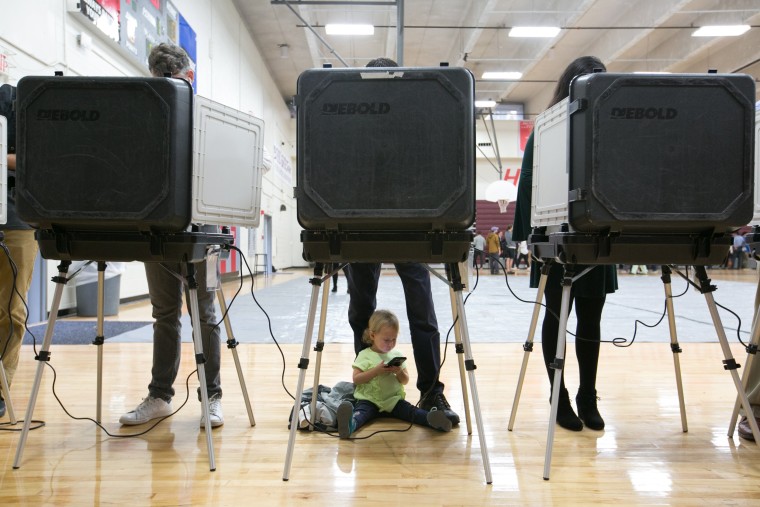In recent years, Americans have seen plenty of Republican officials across multiple states pursue voter-suppression tactics. But in the wake of the 2020 elections, the anti-voting crusade is qualitatively different.
A Washington Post analysis last week noted that the Republican Party's national push "to enact hundreds of new election restrictions could strain every available method of voting for tens of millions of Americans, potentially amounting to the most sweeping contraction of ballot access in the United States since the end of Reconstruction, when Southern states curtailed the voting rights of formerly enslaved Black men."
The question, of course, is what voting-rights advocates will -- or even can -- do about it.
To be sure, we can expect to see pro-democracy forces appeal to GOP lawmakers' consciences. We can also expect to see protests, pro-election media commentary, and plenty of voting-rights lawsuits.
But there's one piece to the puzzle that might give Republicans pause. CNBC reported over the weekend that progressive voices are "turning up the pressure on large Georgia companies like Coca-Cola and Delta Airlines to oppose sweeping voting restrictions proposed by Republican state legislators."
Groups including Black Voters Matter, the New Georgia Project Action Fund and the Georgia NAACP on Friday launched the next phase of their campaign in local press and on social media asking supporters to directly contact CEOs, presidents and headquarters of major Georgia-based corporations. They're urging them to speak out publicly against the proposed voting restrictions and to stop donating money to the Republican legislators sponsoring the bills.
Georgia isn't the only state where GOP officials are moving forward with plans to make it vastly more difficult for voters to participate in their own democracy, but the efforts in the Peach State are among the nation's most egregious.
It's difficult to say who, if anyone, can prevent the voting-rights assault from advancing, but if there's one group of people who'd get Georgia Republicans' attention, it's the state's business community. To that end:
The coalition is focusing on six of the biggest companies in Georgia — Aflac, Coca-Cola, Delta Airlines, Home Depot, Southern Company and UPS — with full-page ads, demonstrations and text banks. A March 3 investigation by Popular Information found the six corporations gave a combined $190,800 to co-sponsors of [key anti-voting proposals] since 2018.
The activism has not gone unnoticed. In a new statement to CNBC, the Georgia Chamber of Commerce, whose members include several corporate giants, said it has "expressed concern and opposition" to lawmakers about provisions found in two of the state's most offensive anti-voting proposals.
Time will tell whether this has the desired effect, but there is some precedent for the broader dynamic. In 2015, Indiana Republicans found it necessary to "revise" a discriminatory policy against LGBTQ Americans in the wake of a corporate backlash.
A year later, North Carolina Republicans faced a similar backlash from Big Business after GOP officials adopted their controversy "bathroom bill" targeting LGBTQ Americans.
The point is, Republicans may not listen to many outside forces, but they do care about Corporate America. The more executives and business leaders urge GOP policymakers to leave voting rights intact, the more likely Republicans are to listen.

